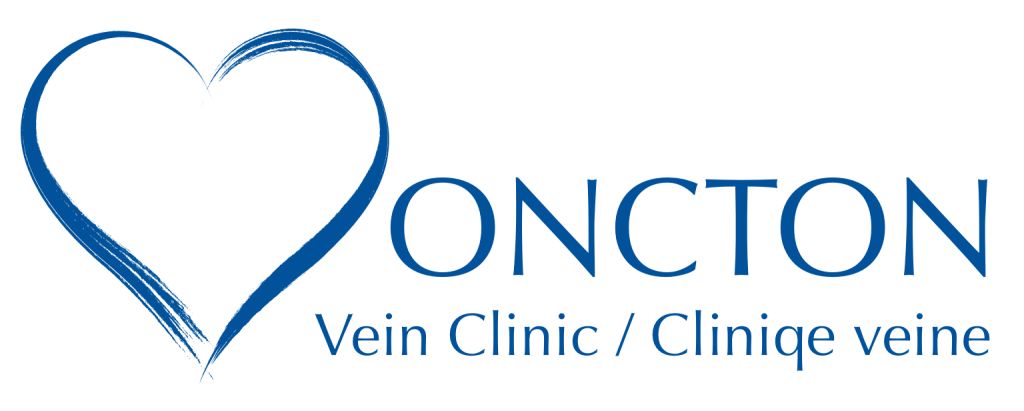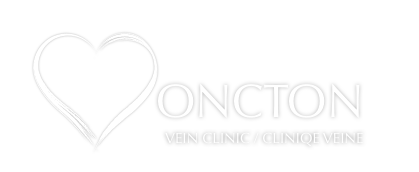Menu
Monday - Friday
8:00 AM - 4:00 PM
100 Arden St. (Suite 105)
Moncton, NB E1C 4B7
Menu
8:00 AM - 4:00 PM
Moncton, NB E1C 4B7
Varicose Veins Treatments
To push blood back to your heart, your veins rely mainly on surrounding muscles and a network of one-way valves. As blood flows through a vein, the cup-like valves open to allow blood through, then close to prevent backflow.
In varicose veins, the valves do not work properly, allowing blood to pool in the vein and making it difficult for the muscles to push the blood “uphill.”
Varicose veins are abnormally large, twisted, bluish veins that bulge under the skin in the legs.
Varicose veins occur when the walls of veins become weakened. The weakened walls allow the vein to get bigger. As the vein stretches, the valves in the vein can’t work like they should.
Varicose veins are branches of one of two main superficial veins called the greater (long) or lesser (short) saphenous vein.
Varicose veins are very common. Around one-third of all adults have varicose veins. They are more common in women than in men.
The most recognizable symptoms of varicose veins include:
Although they can be unsightly and uncomfortable, varicose veins aren’t dangerous for most people. They may be a cosmetic concern for patients.
Varicose veins can be associated with a brown discolouration (staining) or small purple or dark blue veins (reticular or spider veins).
In addition to these visual changes, if varicose veins worsen can cause symptoms of discomfort, aching, mild swelling, burning, itching or fatigue.
When inflamed, they become tender to the touch and may develop clots (superficial thrombophlebitis). These superficial veins are extra veins and can be ablated without harm to your health or circulation.
Varicose veins and spider veins are both types of venous disease, but they look different. Spider veins are smaller and thinner than varicose veins.
They look like red or blue spider webs or branches of a tree, and they are close to the skin’s surface. Spider veins aren’t usually painful.
Anyone can develop varicose veins, but women are more likely to have them than men. Certain factors increase your chances of developing varicose veins, including:
Even though your genetics play a part in your risk for varicose veins, there are things you can do to prevent them.
A venous ultrasound is a simple, non-invasive method to thoroughly assess the veins of your legs. The ultrasound shows abnormal veins and sites of reversed flow (reflux), which are the cause of your varicose veins.
This information is essential to formulate a customized plan for you.
If concerned about the problems related to varicose veins noted above, a vascular assessment would be useful.
There are multiple approaches to treat varicose veins. Common approaches include removing the varicosities through stripping or via a microsurgical technique; injecting, burning varicosities with a laser to create thrombophlebitis (clotting) with scarring of the veins or collapsing the veins with glue.

We emphasize minimally invasive techniques that cause only minor discomfort and let you return to your usual activities immediately after treatment.


100 Arden Street (Suite 105)
Moncton, NB E1C4B7
